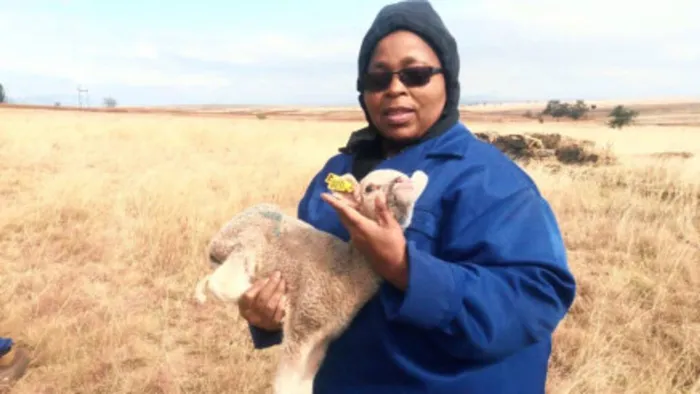
Farmer Gugu Zondi inspects her livestock on her farm near Vryheid. Farmer Gugu Zondi inspects her livestock on her farm near Vryheid.
Durban - KwaZulu-Natal cattle farmers affected by the drought will have little to celebrate even though the price of red meat is set to increase by nine to 15 percent between now and December.
Paul Makube, senior agricultural economist at FNB, said red meat slaughtering had been substantially higher this year compared to the past three years.
He said farmers would have nothing much to gain because they were coming from the difficult position of a three-year drought.
“On the back of drought, we have seen a liquidation of the South African herd. Meat producers have had no choice but to cut down on their stock. We are entering into a seasonal increase in demand in December,” Makupe said.
He said after the rainy season, meat producers would hold on to their stock and breed calves because drought conditions would not be so severe.
“The grass will be lush and green making it easy for grazing. It takes about two to seven years to rebuild stock,” he said.
A member of the Elandlagte Farmers Association, Mark Hansmeyer of Ladysmith, warned that the drought would cause a huge red meat shortage in the market which would necessitate a import of meat from overseas.
He said people did not know how badly the dry season had affected the industry as farmers had had to reduce their livestock.
“We are cutting corners to stay in the business but this has a negative implication because it compromises our livestock. I have stopped feeding my cattle food supplements because each bag costs R200. I was forced to cut down from 1 000 head of cattle to 700,” said Hansmeyer.
However, Hansmeyer said the meat price increase would not benefit farmers who were already in debt and that the drought was a long way from over. “Its impact will be felt for another two years,” he said.
Emerging farmer Thubelihle Zondo, who is also the provincial secretary of the African Farmers’ Association of South Africa, said most farmers in severely affected areas would not benefit from the price increase because they did not meet the standard meat grade required.
“Livestock was emaciated due to lack of food and water. Some farmers experienced high mortality rates. We had no savings to use as financial reserves to fight the drought. Food supplements became expensive and we were unable to take good care of our livestock,” Zondo said.
Farmer Gugu Zondi who has 220 head of cattle and 250 merino sheep on her Brakspruit farm near Blood River said 30 cows had died last year.
“I do not expect to gain from the meat price increase because I have already lost cash to buy food supplements to keep my stock healthy,” Zondi said.
nkululeko.nene@inl.co.za
Sunday Tribune